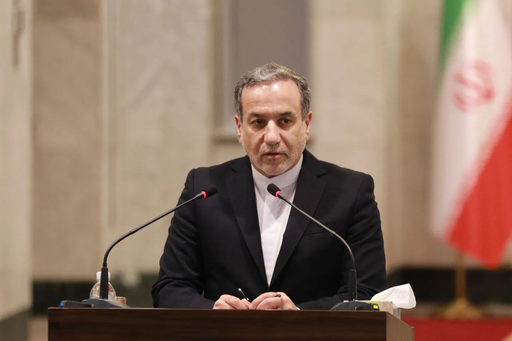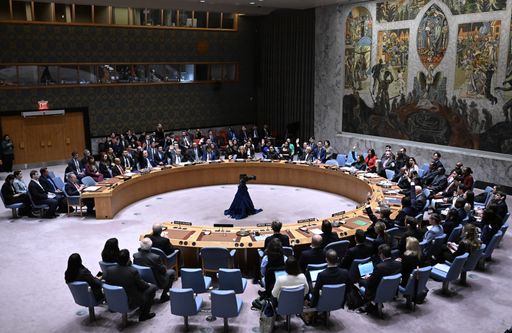Marking a pivotal moment in global diplomacy, France, Britain and Germany this week ceased crucial nuclear negotiations with Iran in Geneva without reaching an agreement.
Known collectively as the E3, the three countries resorted to invoking a ‘snapback’ of UN sanctions on Iran to force the Shia-majority nation to comply with full IAEA inspections of its nuclear facilities.
In a letter, French Foreign Minister Jean-Noel Barrot notified the UN Security Council regarding Iran’s “non-compliance” under the JCPOA, and that they were triggering the snapback procedure so that Tehran’s nuclear escalation does not go further.
However, he mentioned that the three European powers are open to negotiations during the 30-day period before the sanctions take effect.
Up till the October 18 deadline for expiration of the deal’s snapback window, there is hope of Iran agreeing to comprehensive IAEA inspections and engaging in talks with the United States.
But after a month, sanctions covering Iran’s financial, banking, hydrocarbons and defence sectors would be restored.
What has the E3 really achieved?
Even as Moscow and China oppose this move and Iran threatens “consequences”, one wonders whether the E3 used this tool just because the ‘sunset clause’ – as the snapback mechanism is also called – would have lapsed.
In short, the talks simply fell apart before any gains were made or confidence-building measures were discussed.
Though the E3 invoked the mechanism as their last chance to act, Europe may be practically out of the picture after this move. Mistaking pressure for strategy, the E3 acted before arranging a diplomatic off-ramp.
And there are risks that this step will backfire.
If E3’s intention was to bring Iran back to the negotiating table, Tehran has already denounced the move as “baseless” and “illegal” and warned of suspending cooperation with the IAEA. Rather than securing any concession from Iran, the E3 may have pushed it further away.
These talks with the E3 were a good chance to settle the matter diplomatically, but the opportunity to resuscitate the Joint Comprehensive Plan of Action (JCPOA) appears to have been lost.

Signed between the US, Iran, China, Russia, Britain, France and Germany in 2015 to prevent Tehran from making nuclear weapons by removing economic sanctions, the JCPOA virtually collapsed after Washington walked out in 2018, a year into Donald Trump’s first term as President.
After a while, Iran was accused of violating the nuclear deal by enriching uranium to 60 percent, just a few steps away from the 90 percent purity required for a nuclear weapon. Iran allegedly had enough material for six bombs.
Demanding a full removal of sanctions, Iran was unwilling to discuss the matter with the US, so the E3 reached out as JCPOA signatories and several rounds of inconclusive discussions took place.
But getting impatient, the US and Israel suddenly moved to destroy Iran’s nuclear facilities in July, leading to the 12-day war between Tehran and Tel Aviv.
This week, nuclear inspectors have returned to Iran for the first time since the US-Israel attacks, but Iran has said that the return of IAEA inspectors does not mean resumption of full cooperation with them.
Are the snapback sanctions effective?
Pragmatically, the snapback threat may be potent in symbolism and a powerful lever in the early days of the JCPOA, but it may not be very useful in practice today.
In their 2022 policy analysis for the Washington Institute, Henry Rome, a senior fellow and Louis Dugit-Gros, a visiting fellow, wrote that the economic sanctions under the snapback mechanism are likely to be marginal compared to the existing US secondary sanctions, and they may have become just a diplomatic “emergency stop button” rather than an effective tool for negotiation.
And though it may not deter Iran, triggering the snapback mechanism would be taken as “a definitive sign that the talks have failed”.
After this, there can be no returning to the JCPOA and all the compromises and spade-work done to put together the nuclear deal are wasted, as well as the efforts made to revive it in the past few years.
This snapback decision can provoke the worst crisis in Iran’s relations with the West. Triggering it without any clear diplomatic alternative can escalate the matter without ensuring Iran’s compliance with IAEA rules.
Next, hardliners in the Tehran administration might use the renewal of sanctions as an excuse to justify unchecked nuclear advances.

Also, Iran could respond by withdrawing from the Non-Proliferation Treaty (NPT). According to the International Crisis Group, Tehran could choose to terminate the 1974 agreement with the IAEA that determines the parameters for its nuclear oversight.
And finally, Tehran is likely to rely more on alternative partners like Russia and China, continuing to diversify its trade away from Western payment systems to make the sanctions even more inconsequential.
Drawing closer to Moscow and Beijing, Iran would have more incentive to deepen energy, defence and economic ties, reducing Europe’s leverage even further.
Working to block the snapback, Moscow and China had been circulating a draft resolution among the 15 members of the UN Security Council to extend the deal till April 18, 2026.
Aiming to buy more time for Tehran, they tried to neutralise the sanctions by calling for a suspension of ‘any substantive action.’
But the snapback mechanism cannot be vetoed once triggered, and the sanctions contained in six suspended UN resolutions would roll out on October 18, and the 2015 JCPOA deal will expire.
By pressing too hard, Europe might have just brought down what was left of the JCPOA’s fragile structure. Getting Russia and China on board might have been a more practical strategy.



















